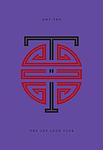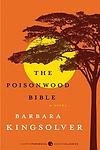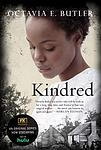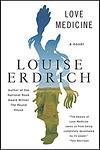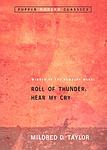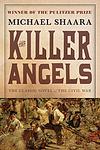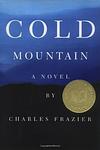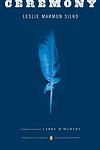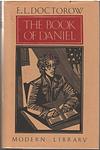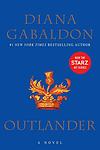The Greatest American "Historical fiction, Fiction" Books Since 1970
Click to learn how this list is calculated.
This list represents a comprehensive and trusted collection of the greatest books. Developed through a specialized algorithm, it brings together 288 'best of' book lists to form a definitive guide to the world's most acclaimed books. For those interested in how these books are chosen, additional details can be found on the rankings page.
Genres
Historical fiction is a genre of literature that combines fictional stories with real historical events, settings, and characters. These books often take place in a specific time period and are based on research and factual information, but also include imaginative elements to create a compelling narrative. Historical fiction allows readers to experience the past in a unique and engaging way, while also providing insight into the social, cultural, and political issues of the time.
Countries
Date Range
Reading Statistics
Click the button below to see how many of these books you've read!
Download
If you're interested in downloading this list as a CSV file for use in a spreadsheet application, you can easily do so by clicking the button below. Please note that to ensure a manageable file size and faster download, the CSV will include details for only the first 500 books.
Download-
1. Beloved by Toni Morrison
This novel tells the story of a former African-American slave woman who, after escaping to Ohio, is haunted by the ghost of her deceased daughter. The protagonist is forced to confront her repressed memories and the horrific realities of her past, including the desperate act she committed to protect her children from a life of slavery. The narrative is a poignant exploration of the physical, emotional, and psychological scars inflicted by the institution of slavery, and the struggle for identity and self-acceptance in its aftermath.
-
2. Blood Meridian by Cormac McCarthy
Set in the mid-19th century, this novel follows a violent teenager known as "the Kid" as he joins a group of Indian-hunters led by the enigmatic and brutal Judge Holden. The narrative is a gruesome depiction of the lawless American West, filled with philosophical musings, vivid descriptions of the harsh landscape, and brutal, relentless violence. The story explores themes of human nature, morality, and the inherent chaos and brutality of life.
-
3. The Amazing Adventures of Kavalier and Clay by Michael Chabon
The book follows the lives of two Jewish cousins, one a skilled escape artist and the other a talented artist, before, during, and after World War II. They create a popular comic book superhero, which brings them fame and fortune. However, their success is complicated by personal struggles, including the escape artist's attempts to rescue his family from Nazi-occupied Prague and the artist's struggle with his sexuality. The narrative explores themes of escapism, identity, and the golden age of comic books.
-
4. The Joy Luck Club by Amy Tan
This novel explores the complex relationships between four Chinese-American mothers and their American-born daughters. The narrative switches between the perspectives of the eight women, revealing their pasts, their struggles with cultural identity, and the misunderstandings that have grown between the generations. The mothers, who all experienced hardship in their native China, want their daughters to have better lives and thus push them to excel in America. The daughters, in turn, struggle to reconcile their American surroundings with their Chinese heritage.
-
5. Sophie's Choice by William Styron
Set in post-World War II Brooklyn, this novel follows the story of a young Southern writer who becomes friends with a Jewish scientist and a beautiful Polish Catholic survivor of the Auschwitz concentration camp. The narrative unravels the tragic love triangle between the three characters, with the woman's haunting past and the horrific choice she had to make in the concentration camp serving as the heart of the story. The book delves into themes of survival, guilt, and the struggle to find meaning in the aftermath of atrocities.
-
6. Ragtime by E. L. Doctorow
Set in the early 20th century, this novel intertwines the lives of fictional characters with real historical figures, creating a vivid portrayal of America's past. The narrative follows the lives of an upper-class family in New Rochelle, New York, an African-American musician from Harlem, and a Jewish immigrant and his daughter, while also featuring historical figures like Harry Houdini, J.P. Morgan, and Henry Ford. The novel explores themes of wealth, race, and class, against a backdrop of significant historical events, such as the onset of World War I and the rise of the labor movement.
-
7. So Long, See You Tomorrow by William Maxwell
The novel revolves around a young boy in Illinois who befriends a new classmate, Cletus, whose father has been murdered. The protagonist becomes obsessed with the murder, imagining the events leading up to the tragedy from the perspectives of the involved parties. The novel explores themes of memory, guilt, and the impact of trauma on childhood friendships.
-
8. The Poisonwood Bible by Barbara Kingsolver
The Poisonwood Bible is a novel that follows the experiences of a missionary family in the Belgian Congo during the 1960s. The story is told from the perspective of the wife and four daughters of the Baptist minister who drags his family into the politically volatile Congo on a mission to save souls. The novel explores themes of cultural arrogance, religious zeal, and the clash of Western and African values, as well as the personal growth and self-discovery of the women in the family as they grapple with the harsh realities of their new life and the fallout from their father's single-minded vision.
-
9. Kindred by Octavia E. Butler
"Kindred" is a gripping and thought-provoking novel that follows the life of Dana, a young African American woman living in the 1970s. Suddenly, she finds herself inexplicably transported back in time to the early 19th century, where she becomes entangled in the lives of her ancestors, who are enslaved on a plantation. As Dana navigates the brutal realities of slavery, she grapples with her own identity, the complexities of race, and the enduring legacy of the past. With its powerful storytelling and exploration of the connections between past and present, "Kindred" is a profound examination of history, race, and the enduring resilience of the human spirit.
-
10. Lonesome Dove by Larry McMurtry
The book tells the story of two retired Texas Rangers who embark on a perilous cattle drive from Texas to Montana in the 1870s. The narrative focuses on the duo's adventures and the characters they meet along the way, including a variety of outlaws, Indians, and settlers. This epic tale of the Old West explores themes of friendship, unrequited love, and the harsh realities of frontier life.
-
11. Roots by Alex Haley
This groundbreaking historical novel follows several generations of an African American family, beginning with Kunta Kinte, a man captured in Gambia in the 18th century and sold into slavery in the United States. Through Kinte and his descendants, the narrative explores the brutal realities of slavery and its aftermath, the struggle for freedom and civil rights, and the perseverance of a family through immense hardship. The story is based on the author's own family history, making it a significant work in the exploration of African American heritage and identity.
-
12. Love Medicine by Louise Erdrich
"Love Medicine" is a novel that explores the lives of several generations of a Native American family living on a reservation in North Dakota. The narrative is presented through a series of interconnected stories, each told from the perspective of different family members, and spans over 60 years, from 1934 to 1999. The book explores themes of love, family, identity, and the struggle between tradition and modernity. It provides a deep and poignant look into the complexities of Native American life and culture, and the challenges faced by the community.
-
13. Roll of Thunder, Hear My Cry by Mildred D. Taylor
Set in Mississippi during the Great Depression, this novel follows the life of a young African American girl and her family who are struggling to maintain their integrity, pride, and independence in the face of racism and social injustice. The family owns a piece of land which provides them some protection from the harsh realities of racial discrimination. The story is a poignant exploration of how they navigate through a prejudiced society, face social and economic challenges, and fight to keep their land.
-
14. The Killer Angels by Michael Shaara
"The Killer Angels" is a historical novel that provides a detailed account of the Battle of Gettysburg during the American Civil War. Told from the perspectives of several key figures, including Generals Robert E. Lee and James Longstreet on the Confederate side, and Colonel Joshua Chamberlain on the Union side, the book explores the motivations, thoughts, and struggles of these men as they navigate the brutal realities of war. The narrative vividly brings to life the events, decisions, and human drama that culminated in the pivotal battle, shedding light on the personal and political complexities of this critical period in American history.
-
15. The Known World by Edward P. Jones
"The Known World" is a historical novel set in antebellum Virginia, exploring the complex relationships between slaves, free blacks, and whites. The story revolves around a black man who becomes a slave owner, his wife, and their slaves. It provides a unique perspective on the moral complexities and personal consequences of slavery, while also examining the intricate social hierarchy of the time. The narrative is filled with richly drawn characters, each with their own stories and struggles, offering a vivid portrayal of a little-known aspect of American history.
-
16. Cold Mountain by Charles Frazier
"Cold Mountain" is a novel set during the American Civil War, following a wounded Confederate soldier who deserts the army to make a perilous journey back home to his beloved. The narrative alternates between his arduous trek and the struggles of the woman he left behind as she tries to maintain their North Carolina homestead. The novel explores themes of love, survival, and the destructive impact of war on the human spirit.
-
17. Ceremony by Leslie Marmon Silko
"Ceremony" is a novel that explores the life of Tayo, a World War II veteran of mixed Laguna Pueblo and white heritage. After returning from the war, Tayo struggles with post-traumatic stress disorder and alcoholism. The novel charts his journey towards healing, which involves embracing his Native American heritage and the traditional ceremonies of his people. Along the way, he must confront racism, poverty, and the destructive forces of Western culture, ultimately finding solace and redemption in the ancient rituals and wisdom of his ancestors.
-
18. The Book of Daniel by E. L. Doctorow
"The Book of Daniel" is a semi-fictional novel that explores the lives of the Isaacson family, specifically focusing on the children, Daniel and Susan, after their parents, accused of being Communists, are executed. The narrative is a combination of historical fiction and a political commentary, providing a deep exploration of the Red Scare in the United States during the Cold War era. The novel is a critical examination of social, political, and familial dynamics in a time of national fear and paranoia.
-
19. Outlander by Diana Gabaldon
The novel follows a World War II nurse who accidentally time travels back to 18th century Scotland. There, she meets a handsome and brave Scottish warrior and is torn between her loyalty to her husband in her own time and her growing love for the warrior. As she becomes more entwined in the past, she must navigate the dangers of a time not her own, including political unrest and violence, while trying to find a way back home.
-
20. Angle of Repose by Wallace Stegner
This novel follows the story of a retired historian, wheelchair-bound due to a degenerative disease, as he explores the lives of his pioneering grandparents in the late 19th and early 20th century American West. Through letters, he pieces together their struggles, triumphs, and the impact of their relationship on their surroundings. The historian parallels his own life and failed marriage with that of his grandparents, leading to a deep exploration of the concepts of stability, perseverance, and the "angle of repose."
-
21. The Plot Against America by Philip Roth
This novel presents an alternate history where aviator-hero and rabid isolationist Charles Lindbergh is elected President in 1940, leading the United States towards fascism and anti-Semitism. The story is narrated through the perspective of a working-class Jewish family in Newark, New Jersey, experiencing the political shift and its terrifying consequences. The narrative explores themes of prejudice, fear, patriotism, and family bonds under the shadow of a fascist regime.
-
22. Bless Me, Ultima by Rudolfo Anaya
The novel follows the story of a young boy in New Mexico in the 1940s who navigates the challenges of adolescence, faith, and identity with the guidance of a wise old woman named Ultima. Throughout the narrative, the boy grapples with moral dilemmas, the complexities of his Mexican-American heritage, and the clash between the Catholic faith and the traditional spiritual beliefs of his ancestors. The story is a rich tapestry of folklore, spirituality, and personal growth.
-
23. The Underground Railroad by Colson Whitehead
This novel follows the journey of Cora, a young slave on a cotton plantation in Georgia, who escapes and embarks on a journey towards freedom via the Underground Railroad. The book presents a literal version of the historical Underground Railroad, portraying it as a physical network of tunnels and tracks beneath the Southern soil. As Cora travels from state to state, she encounters different worlds and harsh realities, each one illuminating the various forms of oppression Black people faced in America. The narrative is a brutal exploration of America's history of slavery and racism, and a testament to the unyielding spirit of those who fought against it.
-
24. A Lesson Before Dying by Ernest J. Gaines
Set in the pre-Civil Rights South, the novel explores the story of a young black man wrongfully accused and sentenced to death for a crime he didn't commit. A local schoolteacher, at the request of the man's godmother, attempts to help the condemned man gain a sense of dignity and self-worth in the final days of his life. The story grapples with issues of racial inequality, justice, humanity, and moral obligation.
-
25. The Sympathizer by Viet Thanh Nguyen
"The Sympathizer" is a gripping spy novel set during the Vietnam War. The protagonist is a half-French, half-Vietnamese army captain who is a communist double agent. After the Fall of Saigon, he moves to America with other South Vietnamese refugees and struggles to reconcile his dual loyalties as he continues to spy on his fellow countrymen in exile. The novel explores themes of identity, war, and politics, while providing a unique perspective on the Vietnam War and its aftermath.
Reading Statistics
Click the button below to see how many of these books you've read!
Download
If you're interested in downloading this list as a CSV file for use in a spreadsheet application, you can easily do so by clicking the button below. Please note that to ensure a manageable file size and faster download, the CSV will include details for only the first 500 books.
Download


